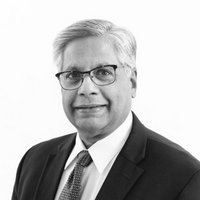Small island developing states (SIDS) are key custodians of our ocean. Island countries can benefit from sustainable blue economies for their livelihood and well-being. Multi-stakeholder and cross-sectoral collaboration and an interdisciplinary approach are vital for the global ocean community to support island economies. A focus on a sustainable blue economy will encourage growth and development in fisheries, aquaculture, blue tourism and ocean-based renewable energy. Challenges remain from illegal, unreported and unregulated (IUU) fishing, seawater warming, climate-change impacts and marine pollution.
This roundtable discussion will discuss strategies and events like the Pacific Partnerships for Prosperity, what to expect at the International Conference of Small Island Developing States and the 10th Pacific Island Leaders Meeting. The focus of the conversation will be regional co-operation and international partnerships to build holistic and efficient sustainable ocean economies in island nations. Participants will share solutions, case studies and examples to help large ocean states to be at the centre of the global ocean conversation.
















































































































































































































































































































































































































































